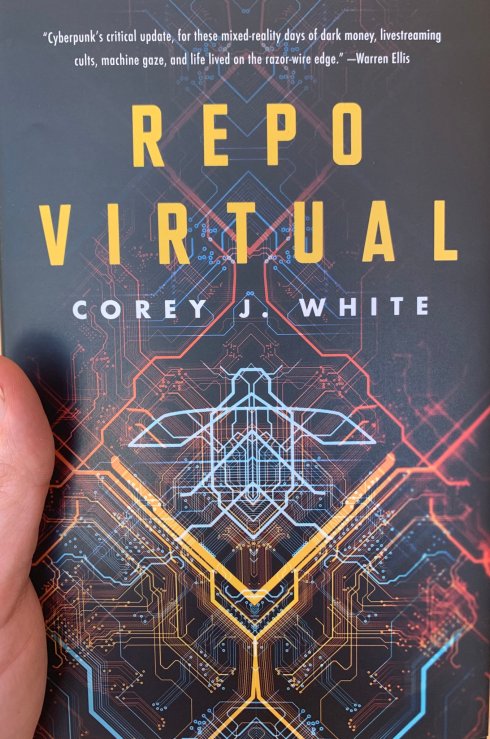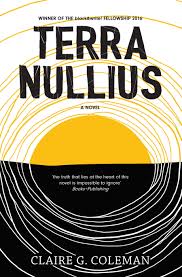Repo Virtual is the debut novel from Melbourne author Corey J White, published by Tor. It’s unrelated to the trilogy of novels he has released previously (Killing Gravity, Void Black Shadow, and Static Ruin, collectively known as The Voidwitch Saga). I’ve reviewed those over on Goodreads, but haven’t posted them here. I’ll get on that in coming days.
A shorter version of this review is also available on Goodreads.

Repo Virtual is unapologetically cyberpunk, and with that acceptance of genre will come a lot of familiar features and tropes: the heist, the evil corporation, the Asia in the 21st Century, the virtual reality, the AI… and they’re all here, and they do form the backbone of the novel, but White has built something original on that framework, and updated the genre for the actual 21st Century, not the one being imagined by the cyberpunk pioneers of the 80s. That’s not to say that those 80s influences aren’t here. There’s definitely a debt of gratitude owed to some of the genre’s landmark works, but that’s the nature of genre isn’t it? As I said, unapologetic.
Overall I enjoyed the novel. It hooked me early and I kept making time and making excuses to read it during a pretty busy phase of my life, which is always a good sign. I was invested in the characters, and their fates, and there was an interesting philosophical depth beneath the aesthetic and the action.
(more detail, but no real spoilers, below)
*
*
*
*
*
The heist itself is really just the set-up. It serves to introduce the protagonist, JD, and some of the important people in his life–a friend/colleague from an online gaming world and his step-sibling–but it is over quickly and relatively easily by the end of the first act.
The story really picks up once JD has his hands on the prize and the various forces with an interest in either recovering or receiving it are in motion. In this, Zero Corporation functions in much the way we would expect a Corp to function in a Cyberpunk future, with a profit-driven lack of morality and a single-minded obsession with self. The other player here is Kali, a pseudo-mystical leader of a cult of the disenfranchised in the city’s slums. She’s a little more nuanced, and her connections to JD’s life and relationships a little more complex.
Once the heist is completed JD goes to ground, and White takes a bit of a risk benching his protagonist (and our lens on the world) and introducing a new POV character in Enda. Structurally, this changes the nature of the story and our relationship with it, but it’s well done and the novel is better for it: having multiple perspectives on the world really fleshes it out well, and Enda has her own complex backstory on a more grand scale than JD’s local hustle.
There is a third POV character as well, who is introduced in snippets right from the start but as the plot develops this character increasingly enters and eventually takes over the narration in the 1st person. White’s skill in managing this perspective shift is genuinely impressive and shows both boldness and precision in his craft.
On the downside, the villains of the piece were a little monochrome, their motivations and their methods fairly simplistic. The climax, once in motion, moved a little too smoothly to the resolution. Complicated situations became perhaps too quickly uncomplicated. Moral quandaries are raised and then side-stepped without real angst being required.
That said, White set the stage well and followed through. He’s committed to his take on the genre and on the philosophical questions he’s raising, and he avoids some of the pitfalls of cliche along that path.
I was satisfied with the ending and especially impressed by the epilogue, another bold decision from White to shift the scope of our perspective and to put a genuine full-stop on the story.
I’m looking forward to his next novel now.
